Alternative Medicine for Cage Mammals
incl. Rabbit, Chinchilla, Guinea-Pig, Gerbil, Hamster, Chipmunk, Rat, Mouse
See also: Rabbits, Ferrets and Birds
If you wish, go straight to the DISEASES list
Homeopathy – Herbs – Acupuncture – Chiropractic – Holistic Medicine – Natural Feeding
Many wonderful creatures come under the umbrella heading of cage mammals or cage pets, the wording of which almost implies that they were created for caging. This is clearly not the case. These species are included here, since they are likely to be met in the UK only in cage, zoo and domestic situations. In other parts of the world, they are, of course, ‘wild animals‘ and their needs would have been discussed on that page, were we not UK-based.
 As we decide that we would like to keep rats, mice, rabbits, hamsters, gerbils, guinea-pigs (cavies), chinchillas, chipmunks and others in cages, for our own pleasure, we must do all we can to ensure suitability and richness of their environment and optimum quality of life for these small mammals.
As we decide that we would like to keep rats, mice, rabbits, hamsters, gerbils, guinea-pigs (cavies), chinchillas, chipmunks and others in cages, for our own pleasure, we must do all we can to ensure suitability and richness of their environment and optimum quality of life for these small mammals.
For a start, we should avoid buying wild-caught or imported animals. That trade simply encourages severe untold animal suffering, incurs massive death tolls and threatens wild species.
Consider whether the animal may be allowed to roam the house. Rabbits and chinchillas, for instance, can live free in the house, on account of their larger size. They make wonderful characters, when given a chance to express their full potential. While children can derive great pleasure from these animals, we must ensure that this is not to the cost of the pet, in welfare, comfort or health. Keeping such animals should be an opportunity for children to develop respect for animals and understand the responsibilities of keeping them.
Many species are very prone to idiosyncratic drug reactions, with modern conventional drug therapy. Happily, they respond well to homeopathic input (which does not carry this risk) without these adverse effects. This makes the treatment of sick animals very rewarding to the veterinary homeopath. Their susceptibility to stress, shock and fright can lead to acute problems, which can also often be successfully treated with homeopathy.
We usually see these pets at the AVMC premises but house visits can also be arranged, more or less UK-wide.
Whether we see a pet at the AVMC or at home, we look closely at previous veterinary history and results of any tests or investigations. We take an extensive history, enquire into diet and lifestyle, ask about management of the cage, home, garden and other environments and examine the patient closely.
The use of homeopathy and other alternative therapies does not rule out the need for a proper examination and assessment of each individual patient, necessary diagnostic tests, appropriate measures to repair injury and a study of natural lifestyle and diet (special for each species or type), in order to be able to speed recovery. We have enjoyed a good measure of success through this methodology, seeing, as in other species, recoveries from diseases which are usually associated with a poor prognosis in conventional terms and wisdom.
Holistic medicine and management implies that the environment, the diet, the animal’s individual nature and demeanour and the interaction with humans are all taken into account and modified for optimum health.
- Have you ever been told that your animal is now untreatable?
- Are you concerned about the safety of modern drugs for your animal?
- Do you know what is in the foods or supplements you are using?
- Are you confused by manufacturers' claims?
There may be another way …. Holistic methodology may provide some of the answers you are seeking.
See also:
| First-Aid |
| Cage Mammal Topics |
| Nutrition & Natural Feeding |
| Case Histories |
| Cage Mammal Diseases |
| Preventive Medicine |
| Ferrets |
| Zoonoses |
| Notifiable Diseases |
DISEASES
Many of these conditions have been seen and treated at the AVMC:
Click on any condition for more information. Send a request if a disease is not shown or is not yet covered. N.B. Some of these links are in preparation.
While the only promises that can be made are that we will always concentrate and put in maximum effort on your animal’s behalf, and strive for excellence in the application of natural medicine techniques, we are able to report an encouraging level of success in such troublesome and chronic conditions. A great many creatures have surprised their human companions with their ability to defy prognosis and recover. Follow a full holistic program and rely on the animal’s innate healing ability.
See also: Pet Care
Main Treatments offered (see Therapies):
- Homeopathic treatment
- Acupuncture treatment
- Herbal treatment (Phytotherapy)
- Aromatherapy treatment
- Chiropractic treatment
- Nutritional advice – Feeding advice
- LASER treatment
- Ultrasound treatment
- Back manipulation – Back treatment
- Bach Flowers
- Holistic medicine – Holistic veterinary medicine
- Flower Essences
- Tissue Salts
- Holistic therapy – Holistic treatment – Holistic care
- Holistic advice
- Natural medicine – Alternative medicine – complimentary medicine
- Integrated medicine
- CAM – CAVM
- Natural Feeding – Natural Diet
These approaches represent a philosophy that is alternative to the current conventional norm but the use of alternative therapies does not do away with the need for a thorough examination and assessment. Nor does it preclude the use of modern diagnostic techniques where necessary. A holistic vet will take into account all these things, in addition to closely scrutinizing lifestyle, diet, environment etc.
natural guinea pig, natural hamster, natural chinchilla, natural rabbit, natural rat, natural mouse, natural gerbil
